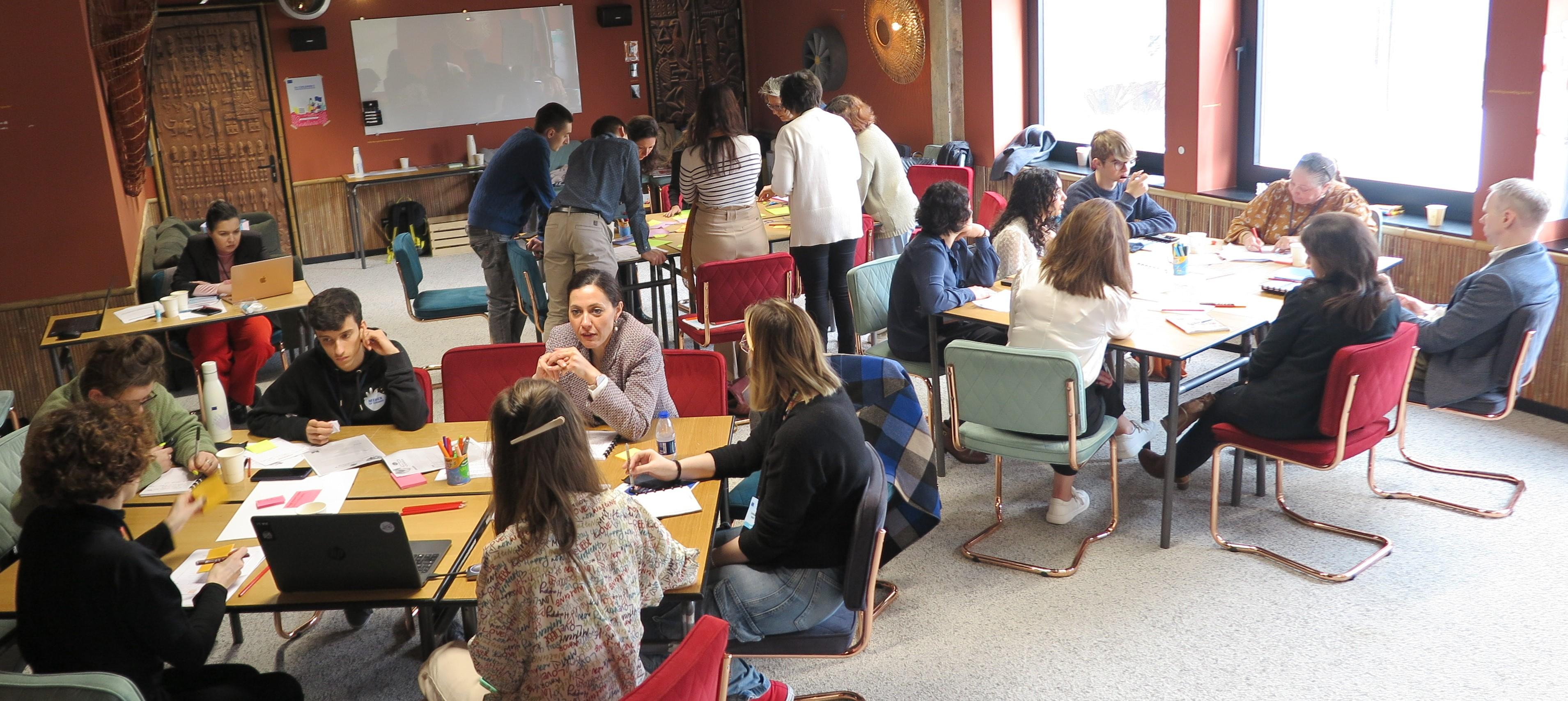
The Advisory Board which is made up of child Platform members, and adults from EU institutions and civil society organisations met in Brussels on April 7-9.
Day one
The first day was spent with the children to prepare the meeting. The agenda, working methods and facilitation are all co-created with the children. They also participated in a few workshops.
- Website: We tested the website structure and got feedback on areas which the children needed to be more visible or easier to understand. This was mostly the membership pages and instructions.
- Media: A session on how to take good videos with a mobile camera. It's important that children's perspectives are included in our videos, so those that are interested can help with the video shooting during activities.
Day two
Day two was the Board meeting, when children were joined by the adult board members.
During the meeting, the Board reviewed how the Platform has worked until now, the direction for the next Work Plan and approved the safeguarding framework.
- Areas for improvement: simplification of online surveys, more in-person focus groups and interviews
- Priority topics: poverty, the right to education, mental health, climate change, actions against bullying, and issues faced by children from minority backgrounds
- Communication: saw the new visual identity, gave suggestions for the newsletter and two new webpages: on the Advisory Board and what the EU does for children
Day three
On day three, eight child board members met with the Commission's Vice-President Dubravka Šuica.
Each child prepared a message on an area of concern to share during the meeting. Vice-President Šuica answered their questions, explained what she does and shared what the EU is doing for children.
Karolina talked about needing more qualified learning support teachers for children. She would like the EU to assess how many children are not getting real help, and then support those children and the member states with funding.
- Guilherme appreciated that the EU is taking important steps to deal with the climate crisis, but in his view, more needs to be done. He wants countries to be encouraged to increase their investments in sustainable solutions such as renewable energies and electric transport and put a limit on CO2 emissions from factories.
- Vice-President Šuica said that it is important to make schools more friendly and the Commission is working on guidelines on how to make it happen. She agreed that bullying is a big problem and that the Commission has plans for helping children in tough situations online and offline and works on making the internet safer for children.
Read the report to see what each child presented, and more of what Vice-President Šuica talked about.
